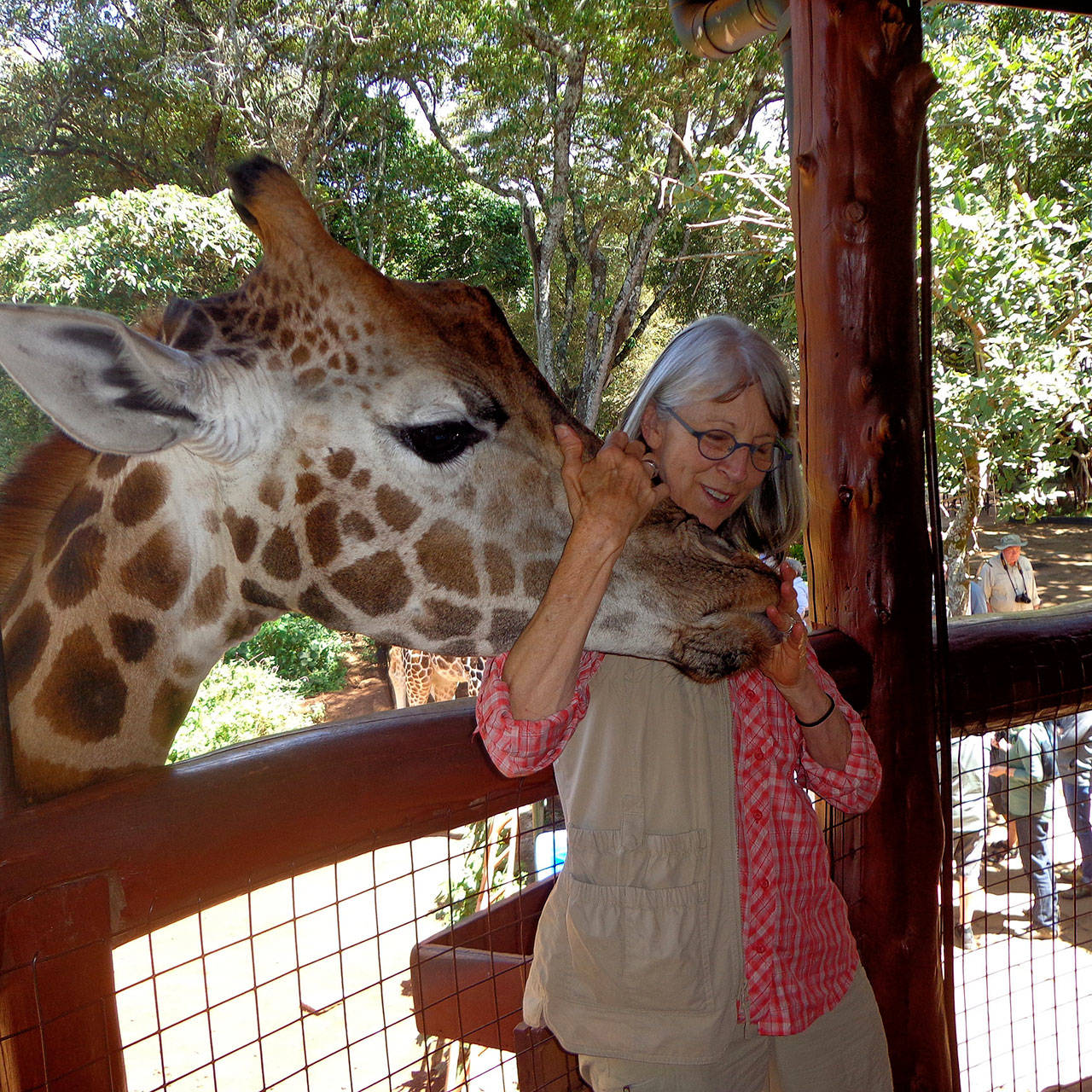Realizing the childhood dream of an African safari is what Connie Lloyd calls a life-changing experience.
The 72-year-old Greenbank resident, who admits to an obsession with horses, is just back from a journey through the Kenyan countryside on horseback.
“After reading National Geographic, and my first trip to a zoo, I knew I wanted to go to Africa to see the wildlife,” Lloyd said. “I grew up on a farm where I was a horse-crazy girl and nearly salivated at the possibility of seeing the animals from horseback.”
The thought of horseback safari started a decade ago when Lloyd met riding instructor and physical therapist Wendy Murdoch at a training clinic on Vashon Island. Murdoch and her partner, Brad Schneider, were organizing a company called Horsing Around International.
Murdoch and Schneider, who live in Virginia, hired a Kenyan company, Safaris Unlimited.
Lloyd started saving travel money as she made plans.
“The slow recovery from an earlier injury reminded me that if bucket lists were to be checked off, they needed to be done sooner than later,” she said.
In January, she and fellow physical therapist Kris Cernak committed to the adventure. Lloyd became more frugal and worked a little more to pay for the trip.
“Sarfaris Unlimited is owned by Kenyan-born Gordy Church and his wife, Felicia,” Lloyd said. “Gordy is extremely knowledgeable about the animals and African culture. It is the only safari company that hires women to participate.”
Getting to Africa was “grueling.” Lloyd took Whidbey Shuttle to Sea-Tac and met Cernak. They had a 10-hour Lufthansa flight to Frankfurt.
After a layover, there was another eight-hour flight to Nairobi, capitol of Kenya.
Surfaris Unlimited advised participants to pack only 33 pounds of luggage for hot days and cool nights. Riders had to be fit enough to ride at least six hours, and be able to gallop away from danger. Everyone was vigilant about anti-malaria medication. Participants flew by chartered plane from Nairobi to Masai Mara National Reserve in the southwestern Kenya, bordering Tanzania.
The nearly 600-square-mile reserve is home to lions, elephants, leopards, cape buffalo, rhinoceros, and hippopotami. Wildebeest, zebra, Thompson’s gazelle, crocodiles, hyenas, cheetahs and jackals.
“We were a tent camp of eight riders, organizers, owners and staff which included many Masai people,” Lloyd says. “We stayed at each location for two or three of the eight-night safari. While we rode during the day, staff set up the next camp, had hot showers and a meal waiting on our return. Each setting had different animals and landscape.”
When not moving camp, participants may go in an all-terrain vehicle for closer photographs, or ride horses and be with animals in the grasslands, hearing their sounds and observing how they move.
“The third campsite was my favorite,” Lloyd says. “We crossed the Mara River on horseback. The footing was rocky, and the silty water was occupied by hippos. It was the only time I felt a sense of danger or urgency. I always thought hippos were slow and docile, but apparently not so.”
The camp was on a steep bluff, so rocky that riders had to walk the horses. Lloyd says the 5,000-foot elevation challenged those who live at sea level. “But it was well worth the climb,” she says. “It was the setting for the movie ‘Out of Africa’ and it truly seemed we could see forever. As I left the tent the next morning, zebras and giraffes were sauntering on the ridge close by.”
At one point, school children, who had never seen horses, visited from a nearby village. Lloyd says it was fascinating to see the expressions of wonder and curiosity on the faces of the children. The safari participants were invited to the village where residents displayed their artwork on blankets spread on the ground.
“The Kenyan people were gracious and welcoming,” Lloyd says. “Gordy and Felicia encouraged us to spend time with the staff, many who had been safari employees for many years. The all-purpose Swahili greeting ‘jambo’ was used throughout the day and I missed the pleasant lilting nature of the word when I returned.”
Lloyd says she had memorable moments hugging a giraffe and interacting with orphan baby elephants. She also had opportunities to canter with a zebra herd, watch a pride of lions playing with cubs and move close enough to watch elephants use their trunks to pull a clump of grass.
“But the image I return to in my mind is sitting on my horse, seeing animals in all directions and feeling I was part of this huge expansive scene.”
Lloyd says many people believe she endangered herself because predators would see the horse as a meal. She explains that it was quickly apparent that other animals and guides were very astute at reading predatory body language resulting in little peril.
For others considering such a trip, Lloyd advises thinking about how important it is and if they are willing to sacrifice some comforts, such as Wi-Fi. She says a safari adventure could be as life-changing for someone else as it was for her, or in her words, “go for it!”
Connie Lloyd and her husband Jerry have been married for 48 years. They live on Reinshadow Ridge in Greenbank with four horses, three dogs, two hens, a bantam rooster, and an African Grey parrot. Although was close to horses in childhood, she was 50 before buying her own and “was totally immersed in the rekindled love of all things horse.”


